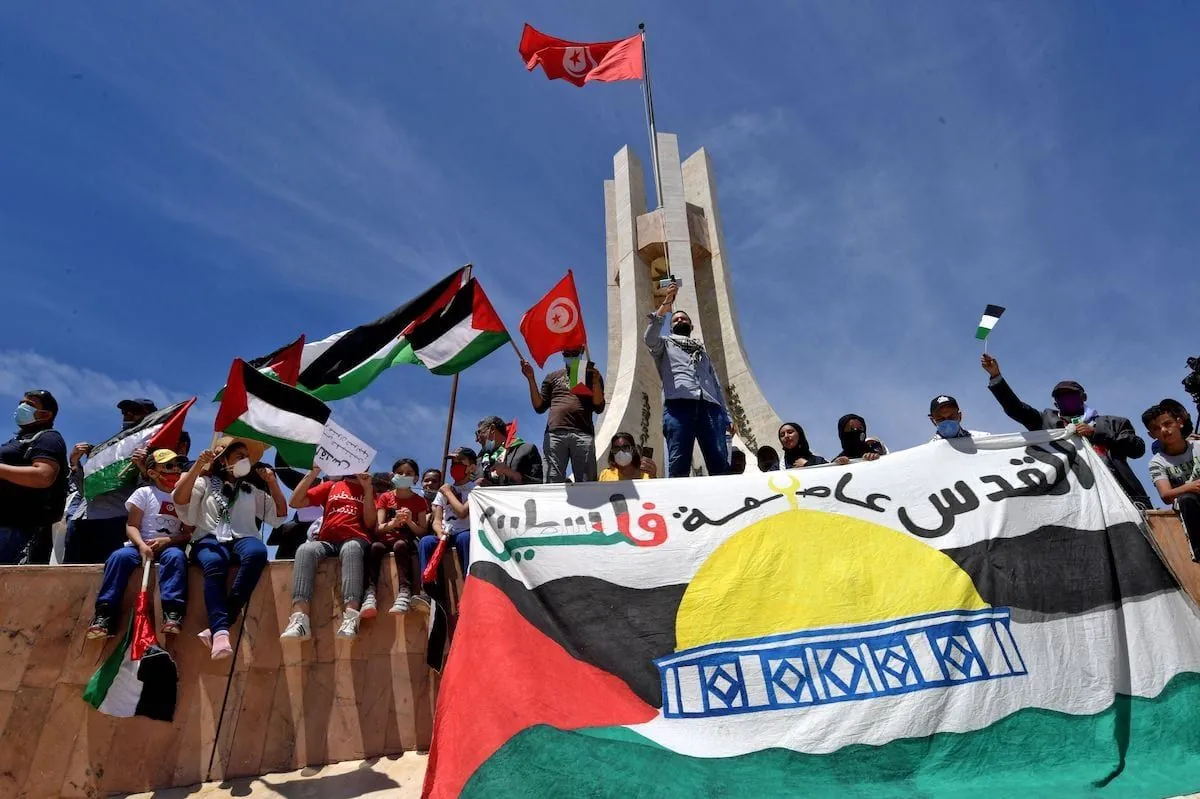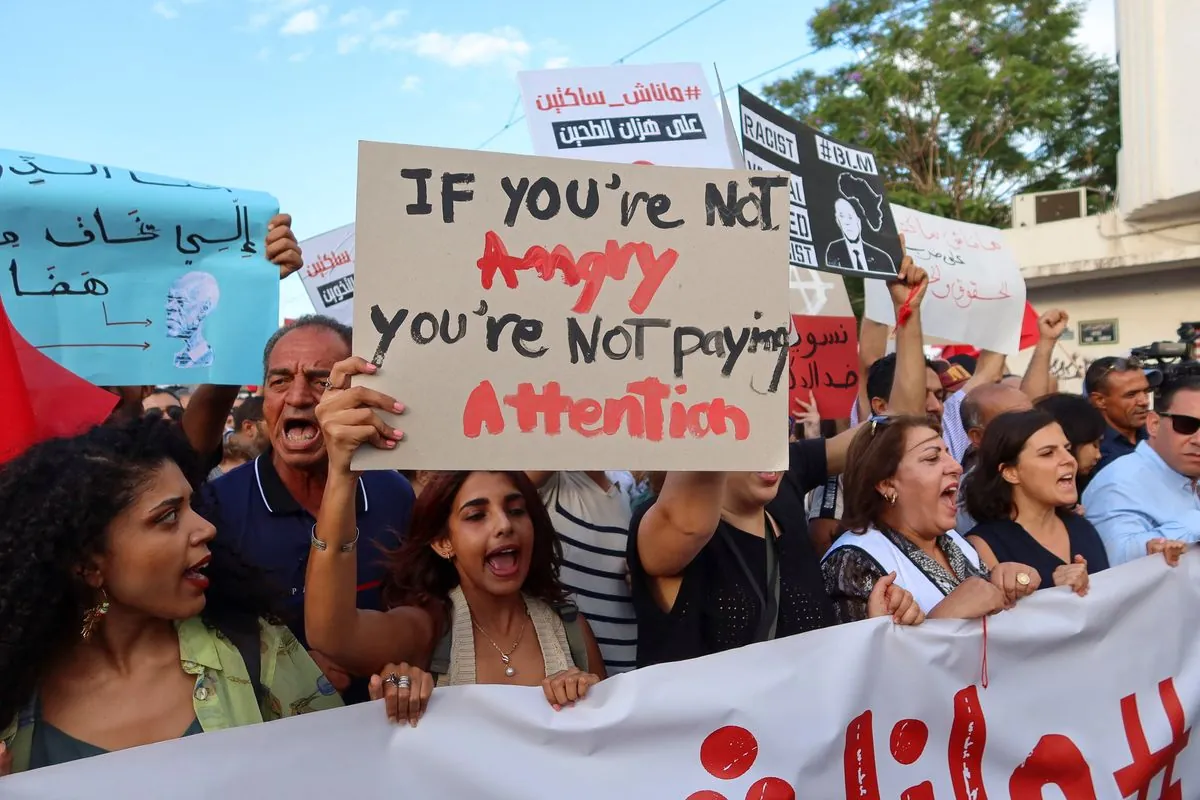Tunisians Rally Against Saied's Alleged Authoritarianism Pre-Election
Hundreds protest in Tunisia, accusing President Saied of authoritarianism ahead of October election. Concerns rise over electoral integrity and political competition.

In a display of growing discontent, hundreds of Tunisians took to the streets on September 22, 2024, to voice their opposition to President Kais Saied's governance. The demonstration, occurring two weeks before a crucial presidential election, highlighted concerns over perceived authoritarian tendencies and restrictions on political competition.
Protesters gathered along Tunis' main avenue, a location steeped in historical significance as the epicenter of the 2011 Tunisian Revolution that ignited the Arab Spring. This event marked a pivotal moment in Tunisia's history, leading to significant political changes and inspiring similar movements across the Arab world.

The current unrest stems from a proposed legislative change that would remove the administrative court's authority to resolve electoral disputes. Opposition figures argue this move could compromise the integrity of the upcoming October 6 election and potentially secure Saied's second term.
Nabil Hajji, leader of the opposition Attayar party, expressed concern over Saied's recent actions, stating:
"Saied's steps show that he is no longer popular and he fears losing the election. Tunisians now have only one choice, which is the streets to defend our democracy."
The political landscape has become increasingly tense since the electoral commission, appointed by Saied, disqualified three prominent presidential candidates. This decision, made in defiance of the administrative court, has left only two contenders to challenge Saied in the upcoming election.
Adding to the controversy, one of the remaining candidates, Ayachi Zammel, was recently sentenced to 20 months in prison for allegedly falsifying election paperwork. Zammel maintains that the charges are politically motivated.
Critics argue that Saied is manipulating the electoral commission and judiciary to secure his victory by limiting competition and intimidating candidates. The president denies these accusations, claiming he is combating corruption and protecting national interests.
Saied, who was democratically elected in 2019, has progressively consolidated power since 2021 when he began ruling by decree. This shift in governance has been labeled by opposition groups as a coup, raising concerns about the future of Tunisia's democratic institutions.
Tunisia, the northernmost country in Africa, has a rich history and diverse landscape. From the ruins of ancient Carthage to its Mediterranean beaches and Sahara Desert, the country has long been a popular tourist destination. However, the current political climate threatens to overshadow its cultural and natural attractions.
As the birthplace of the Arab Spring, Tunisia has been viewed as a potential model for democratic transition in the region. The country has made significant strides since gaining independence from France in 1956, including being the first Arab nation to abolish polygamy and include environmental protection in its constitution.
With a population of approximately 12 million and a literacy rate exceeding 80%, Tunisia faces the challenge of balancing economic development with political stability. The upcoming election will be a critical test for the country's democratic institutions and its ability to navigate the complex landscape of post-revolution politics.


































